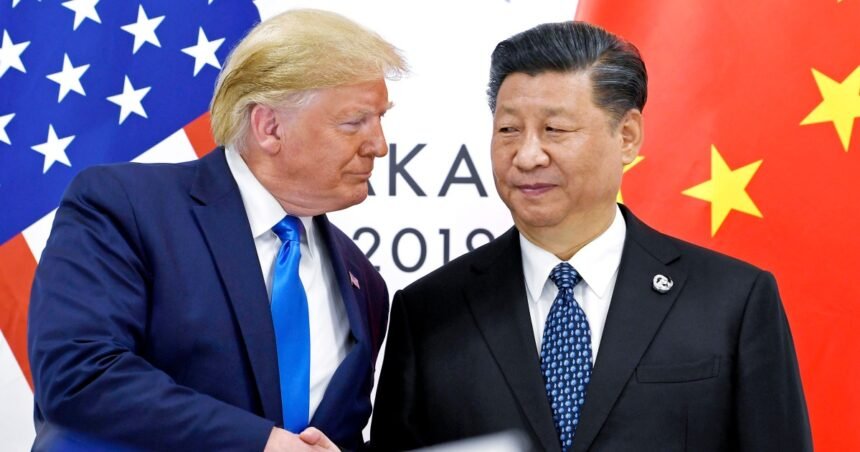HONG KONG — Chinese President Xi Jinping told President-elect Donald Trump in a congratulatory message Thursday that we must find a way to “live in harmony” — a nod to the longstanding tensions between the two superpowers and the Immediate recognition of the disruption caused by Trump’s return.
After winning the election at a critical time for the world’s two largest economies, Trump could inject new volatility into what is often called the world’s most important bilateral relationship.
Relations have reached their lowest point in decades amid disputes over trade, technology, Taiwan and Chinese aggression in the South China Sea. But since last year, the Biden administration has taken steps to improve communication and cooperation with Beijing.
In addition to its impact on the global economy, rising tensions between the United States and China will also have a profound impact on U.S. allies in the Asia-Pacific region such as South Korea, Japan, and Australia.
A “new era”
Xi Jinping, one of many world leaders who were quick to congratulate Trump, said the United States and China “both benefit from cooperation and lose from confrontation,” China’s official Xinhua News Agency reported on Thursday.
He “urged the two countries to find a correct way to get along in the new era, which will benefit both countries and the world.”
“We respect the choice of the American people,” China’s Foreign Ministry said in a statement earlier.
Rick Waters, managing director of the China practice at the New York-based consultancy Eurasia Group, said Trump’s return to the White House “is not entirely unexpected for Beijing.”
Chinese officials see neither Trump nor his Democratic rival, Vice President Kamala Harris, as particularly attractive at a time when taking a tough stance on China is almost the only issue on which the two parties can agree.
Waters said that from China’s perspective, Trump’s first term was divided into a “deal period” from around 2017 to 2019 and an “anger period” in 2020, with the “deal period” focusing on tariffs. and reached a trade deal, during which both countries accused each other of “poisoning relations” with the emergence of Covid-19.
It was during this period that the United States closed the Chinese Consulate in Houston, and China also closed the U.S. Consulate in Chengdu.
So Beijing is now trying to figure out “whether they’re going to choose a transactional government or an angry government,” Waters said, “and they’re going to be prepared for both options.”
The news released by Chinese state media on Thursday was cautiously optimistic.
State-run newspaper China Daily said in an editorial on Wednesday that Trump’s re-election as president “could mark a new beginning in Sino-U.S. relations if the opportunity provided is not squandered.”
Another trade war?
But Chinese officials focused on stabilizing a faltering economy are also taking note of Trump’s vow to impose tariffs of 60% or more on all Chinese imports.
According to CNBC, his victory could prompt Beijing to announce a stimulus plan this week that would be 10% to 20% larger than if Harris had won.
Asked on Thursday about potential tariffs imposed by Trump, Chinese Foreign Ministry spokesperson Mao Ning said she would not answer hypothetical questions but that “there are no winners in trade wars.”
China also complains that the United States is trying to curb its development through export controls and other restrictions on strategically sensitive industries such as semiconductors. It may seek help from tech billionaire Elon Musk, a staunch Trump supporter who has extensive business interests in China and is widely popular in China.
Ian Bremmer, founder and president of Eurasia Group, said “the Chinese hope he can push for a warmer, less containment technology policy,” although it remains to be seen whether Musk can achieve that goal .

